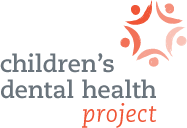The Children's Dental Health Project's blog
In Kentucky, Governor’s decision produces immediate fallout
UPDATE: On July 19, Kentucky health officials stated they would reverse cuts to Medicaid dental, vision and non-emergency medical transportation coverage that have affected more than 400,000 people. This change came after the U.S. Department of Health and Human Services (HHS) announced it would reopen a 30-day comment period to review Kentucky’s Medicaid waiver. Comments are due by August 18 at 11pm and can be submitted online here. As CDHP’s below and earlier blogs explain, a federal court ruled on June 29 that HHS had improperly approved the state’s waiver as it would not meet the program’s core mission to advance health care access; instead, the work requirements and other new rules imposed by the waiver would cause dramatic coverage losses for people struggling to make ends meet.
In the case Stewart v. Azar, a federal court recently stopped Kentucky’s Medicaid waiver from taking effect. Immediately following this ruling, the state’s governor, Matt Bevin, cut oral health, vision, and non-emergency medical transportation benefits for 460,000 low-wage adults who are enrolled in Medicaid. Skirting the normal rulemaking process, this reaction took the public by surprise. Over the past week, we have begun to see the fallout from the Governor’s decision.
Legal advocates have urged the U.S. Centers for Medicare and Medicaid Services to reject the state’s cuts to these critical services. But even as that formal process plays out, communities across Kentucky are already suffering from the coverage loss:
- Hourly workers like Lynda Joseph are uncertain when or if they will be able to afford needed dental care without Medicaid coverage. Pushing care out of reach of adults may also jeopardize children’s oral health. Research suggests that kids whose parents go without dental care are less likely to get care themselves.
- Dental providers are being forced to turn away patients, including children. Kentucky officials clarified that both children and pregnant women should be exempt from the cuts. But as local advocates have noted, unnecessary confusion abounds due to the abrupt change in eligibility.
- The state budget and local economies may face financial strain. At the state level, losing affordable coverage may burden the Medicaid program overall as people increasingly turn to the emergency room for care, a consequence experienced by states like California following benefit cuts. Locally, families will face deeper economic insecurity, particularly in eastern Kentucky. One local news outlet reported that 20% of people in that region lost these important services.
Pushing care out of reach of adults may also jeopardize children’s oral health. Research suggests that kids whose parents go without dental care are less likely to get care themselves.
At the national level, all eyes are on the Trump administration. In addition to reacting to the Kentucky Governor’s benefit cuts, the federal government must respond to the ruling in Stewart. In the case, the court declared the U.S. Department of Health and Human Services (HHS) should not have approved Kentucky’s waiver because it does not further the objectives of Medicaid — to advance affordable access to health care. Specifically, Kentucky’s waiver would have imposed new, unrealistic work requirements on struggling adults as a condition for Medicaid eligibility. Expert analysis shows such restrictions would drop many families from coverage.
Mississippi slightly revised the work requirement in its pending Medicaid waiver. But other states with pending waivers may rightly be waiting for action by the federal agency.
It is unclear as of this writing if HHS will appeal the ruling or, as the court directed, reconsider the impact of Kentucky’s waiver on individuals’ access to coverage. Health policy expert (and CDHP board member) Sara Rosenbaum recently commented that reconsidering the waiver’s impact would not only impact states with outstanding Medicaid waivers, but would also “carry enormous import for other approved work demonstrations in Indiana, New Hampshire, and Arkansas.”
 Unfortunately, work requirements are just one among many onerous regulations that may risk low-wage families’ Medicaid coverage if the agency gives the green light to more states’ 1115 waivers. (For a refresher on the background and federal approval process of 1115 Medicaid waivers, download the recording and slides from our 2017 webinar, Medicaid waivers and children’s oral health.)
Unfortunately, work requirements are just one among many onerous regulations that may risk low-wage families’ Medicaid coverage if the agency gives the green light to more states’ 1115 waivers. (For a refresher on the background and federal approval process of 1115 Medicaid waivers, download the recording and slides from our 2017 webinar, Medicaid waivers and children’s oral health.)
As the fallout from this case evolves, CDHP will continue to speak up for struggling families’ ability to access the affordable oral and overall health coverage we all deserve.
